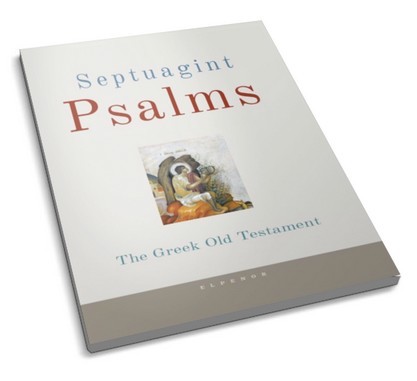A visitor of these pages asks:
The Old Testament, though, often presents God as a warrior — someone rather tribal, “wild”, & judgmental, quick to kill or disown for transgressions, apparently sanctioning revenge, even ordering what looks to be exterminations during war… Mystery I know to accept, but I don’t know how to deal with apparent contradiction… I looked for a book addressing the subject, perhaps titled something like “How to Read & Understand the Old Testament”, but have not been able to find one. Thanks for any suggestions or guidance.
Dear Jack, I respect very much your own good will, but answering to you I will have in mind mainly some other people, that try to diminish the value of the Old Testament without reason. The question if the God ‘of the Old Testament’ is barbaric, is a wrong question, unless we cut and stitch the New Testament in measures that do not exist in herself. Why the God ‘of the Old Testament‘ is savage and brutal – but not the God ‘of the New Testament’, who sends one Plague after another, turns water into blood, and places the large number of all population to the eternal Hell?
The question is wrong, but not devoid of any basis, since in the New Testament there exists the person of Christ, who is Himself the New Testament. We would ask a little better, not opposing the two epochs of the Bible, the Old and the New Testament, but the persons of the Trinity: Is the Father ‘barbaric’ contrary to the Son and the Holy Spirit?
To the same shift of the question we come from other ways too. Why should we remain to comparisons of the New and the Old Testament, when even after Christ death, suffering, pain, injustice still exist in the world – all those that Christ himself suffered?
Yet, Christ is not only a God who does not punish, kill, etc., He is also a God who left Himself to suffer all of them, knowing also that his closest friends will suffer the same – and does not prevent them either for Himself or for his closest Disciples: He allows all this Evil, even if He is not its source. Why?
Page 12










Jack
Thank you for your guidance on this question. I will order those books, for certain. Are any of the authors Orthodox? If not, are there any current writings on the subject by Orthodox theologians, or any ancient writings on the subject by the Fathers? I believe one of the councils dealt with the question when Marcion (?) was rebuked… Perhaps there’s a summary of how that heresy was dealt with… You wrote that the question of Theodicy “was answered as well as it can be answered, and very well, I would add, yet it keeps recurring.” I want to be sure I understand you fully, so point me again to that good answer. Again, I very much appreciate your guidance.
Ellopos Blog
All three books are written by Protestants. In Orthodoxy the Old Testament doesn’t seem to create a scandal. The problem of Marcion was faced by the First Ecumenical Council – A.D. 325. For the rest, a new post is needed, on Theodicy.
Yorgio
Jack, for an Orthodox christian perspective which touches on the issue you raise in your question, I suggest reading THE RIVER OF FIRE by author Alexander Kalomiros. The River of Fire was the main speech delivered at the Orthodox Youth Conference, organized under the auspices of the Russian Bishops of the Diaspora, in Seattle Washington, in 1980. The Archbishop of Canada, Vladika Vitaly, expressed his appreciation and ordered the text to be published in English, Russian and French. The book is an answer to the questions: (1) Is God really good? (2) Did God create hell? You can read the book on-line.
James Carvin
Prior to the First Ecumenical Council there were a number of writers who opposed Marcion, who held the opinion that there was a different God of the Old Testament than the New Testament. The arguments by Ireneus in the second century in Books III and IV of Against Heresies on the subject not only make it clear that there was only one God, but explain Orthodox theology very well. Prior to Ireneus, Tatian touched on the subject and so did Tertullian afterwards. These would be a good start.
One problem that none of these effectively addressed, in my opinion, was the problem of the Amalekites. God commanded genocide. It is one thing that He is judge. It is another that He asks men to execute His judgment and punishes them when they fail to do so. But that was the difference between the Old Covenant and the New. In Ireneus Christ is the end of the Law. The Lord pays the price of the Amalekites, destroying the demons that they represented from the face of the earth. In the Old Covenant the Law serves as a teacher – showing the higher way. Ultimately, it is the perfect man alone who destroys the works of the devil, as represented by the Amalekites. Had the Amalekites repented of their evil deeds then the Law may not have required their annihilation. The Old Testament fails to mention certain things but these may be inferred simply by knowing that God is the same. Thus it seems as though it was against mercy to condemn anyone for sparing them. And it seems as though the command to kill them all wholesale was a form of retribution. And it was. However, the fact remains that if they had repented they could have been spared, as we see from Christ. And it is in fact the New Testament alone that makes the Old Testament understandable, this being a perfect example.